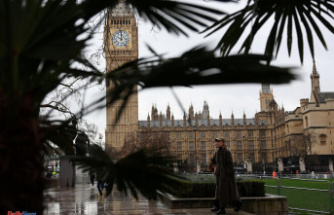The fire, dubbed the "Oak Fire," sprawls near Yosemite National Park and its famous giant sequoias. It "has expanded significantly in the northern portion, moving further into the Sierra National Forest," according to a Sunday bulletin from the California Department of Forestry and Fire Protection.
Favored by "extreme drought", winds and rising temperatures, the fire, fought by some 2,000 firefighters, burned at least 5,500 hectares of forest, destroyed 10 properties, damaged five others and threatened more than 2,500, has told AFP a spokeswoman for this department.
More than 6,000 people, mostly living in small high-altitude communities, had already been evacuated on Saturday, according to another California fire department spokesperson, quoted by the Los Angeles Times newspaper. A state of emergency was declared by state governor Gavin Newsom.
Yosemite Park, one of the most famous in the world, had experienced a fire in mid-July, the flames of which threatened its giant sequoias.
The American West has already experienced forest fires of exceptional magnitude and intensity in recent years, with a very marked lengthening of the fire season, a phenomenon that scientists attribute to climate change.
“Oak Fire” is one of the most dramatic demonstrations of the heat wave which affects the United States this weekend, in the North-West, the center and the North-East. A map from the National Weather Service (NWS) shows a very large part of the country, including California, all of the south, then a large part of the east coast, affected by temperatures between 37 and 43 degrees.
"It will be extremely oppressive, especially in major metropolitan areas from Washington to New York and Boston," the NWS wrote on Twitter.
"Scientists have been predicting these extraordinary and catastrophic events for decades now," former US Vice President Al Gore, who received a Nobel Peace Prize in 2007 for his commitment to the climate.
"Today they say that if we don't stop using our atmosphere as a garbage can, and if we don't stop these heat-trapping (greenhouse gas) emissions, things are going to get worse. More people will be killed and the survival of our civilization is at stake," he added.












